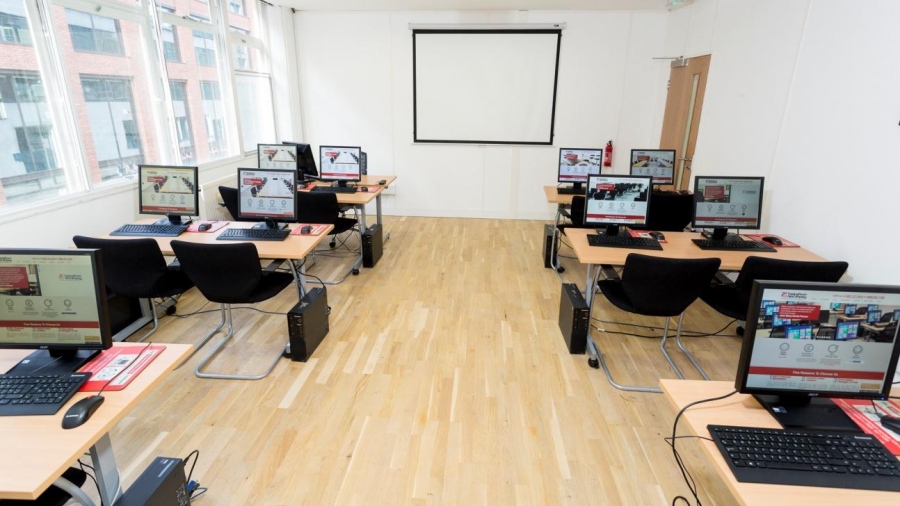Nowadays, approaching training courses is easier than before. You will find more options to choose from and eventually find the best training you need. Rockwell Automation has done a great job with the training advisor, but there are many ways you can learn and train faster. Real training begins when you start programming and from that, you just need to get more experienced.
RSLogix500 has more than one model of programmable logic controller. It is an older version of PLCs, but it is still used in many industries. PLC training has its advantages over working by yourself, you can learn more about details with someone who knows everything about PLCs.
Types of RSLogix500

The advanced version of RSLogix500 is RSLogix 500 Pro which is also the most expensive version. It has some really great features. If you are working in a manufacturing facility it would be really handy, like logic trace, however, it is very expensive.RSLogix500 Pro programs al of the 500 and all micro logix products. There is also an RSLogix500 and some people refer to it as RSLogix500 standard. It also programs all the 500 products as well as all the micro logix, but it doesn’t have some of the high-end features.
The version that is used the most is RSLogix micro starter. It doesn’t say RSLogix500 because it does not program 500 types, but it does program all of the micro logix. The very first micro logix was 1000 and then sometime later the micro logix 1200 was introduced and then finally micro logix 1500. That three micro logix did not support online programming. Online programming allows you to actually edit your code online.
Basic training
When you start up the program in the main menu your option will be limited because you haven’t started a project yet. In the top, you can click on the new project or open the existing one. You should click on the new and name the project as you wish. You also need to pick a processor, if you are using PLC learn series set of manuals during the lab projects then micro logix 1000 would be the processor that you picked. Unless you purchased an 1100 or you are using 500 emulate and you could pick any of 1100.
In the view menu, you can see your toolbar. You can turn them on and of depending on what you will need for the project. You will notice that none of them are ellipses meaning that they don’t have three dots after the name. Just on the bottom, you can find a toolbar with three dots meaning there is more. You should always have your main toolbar open because you have there all the necessary stuff to start working. Also, you want to have an online toolbar open, so you can make changes easily.
Read more about it here: https://electrical-engineering-portal.com/basic-steps-in-plc-programming
Working on a project
When you start a new project on the left side of the screen you will have a project view which is basically the filing cabinet for all of your files. You will have a help file under the project file where you can find every detail you will need, but it is also too much information that takes time to summarize. Next are controller files which are more or fewer hardware files. Program files are viewed on the screen, and you pick what you are working on from the program files.
Data files are also viewed on the screen but program files are primary meaning that your inputs and outputs which are from data files will be in the background if you switch to program files. You can place your data files in front by clicking on the window icon and click on “on top”. Besides inputs and outputs from a data file, you also have status, timer, binary, counter, integer.
To start creating a project you first need to add rung which is placed in the main menu bar. Everything starts with a rung and adding other instructions depend on what you are looking for. You can look at them as switches that turn energy on and off and turn each other on and off. When you are working on it, it is happening online. If you don’t know how to change the code, you need to go to the online bar and click on go offline.
Tips for training
A lot of people like to train and learn systematically, but in cases where you can have big shortcuts, you would like to look more for them because of the benefits you can have. Companies are always looking to get the job done faster, so your productivity needs to be on point if you want to be successful in this area.
It isn’t something new that people steal ideas from others, it happens in bigger industries as well. In this case, it is not considered as stealing the code, it is more like helping to cut down the time needed to make something complex.
PLC training is time-consuming, so you need to be well organized if you want to accomplish your goals. There are a lot of training routines you can pick from the internet, but the best advice is to look at who the trainer is besides looking at the training.
PLC and PLC 2 program
PLC and PLC 2 programs both provide a thorough introduction to the theory and application of PLCs and manufacturing. Each program covers a PLC hardware and software technology and is demonstrated by a simulator. The simulators provide a wide range of real-world PLC applications such as assembly lines, traffic lights and much more.
The main difference between the two programs is that the fundamental PLC technology that is described in the theory and simulated in the labs is different. The plc program provides coverage of the Rockwell 500 series of hardware and software.
The PLC technician 2 program teaches the Rockwell 5000 series of hardware and software incorporating the PLC Logix 5000 simulators. This program introduces the more complex and robust 5000 series instruction set, also increases the flexibility of tag monitoring and tag-based addressing.


























Leave a Reply